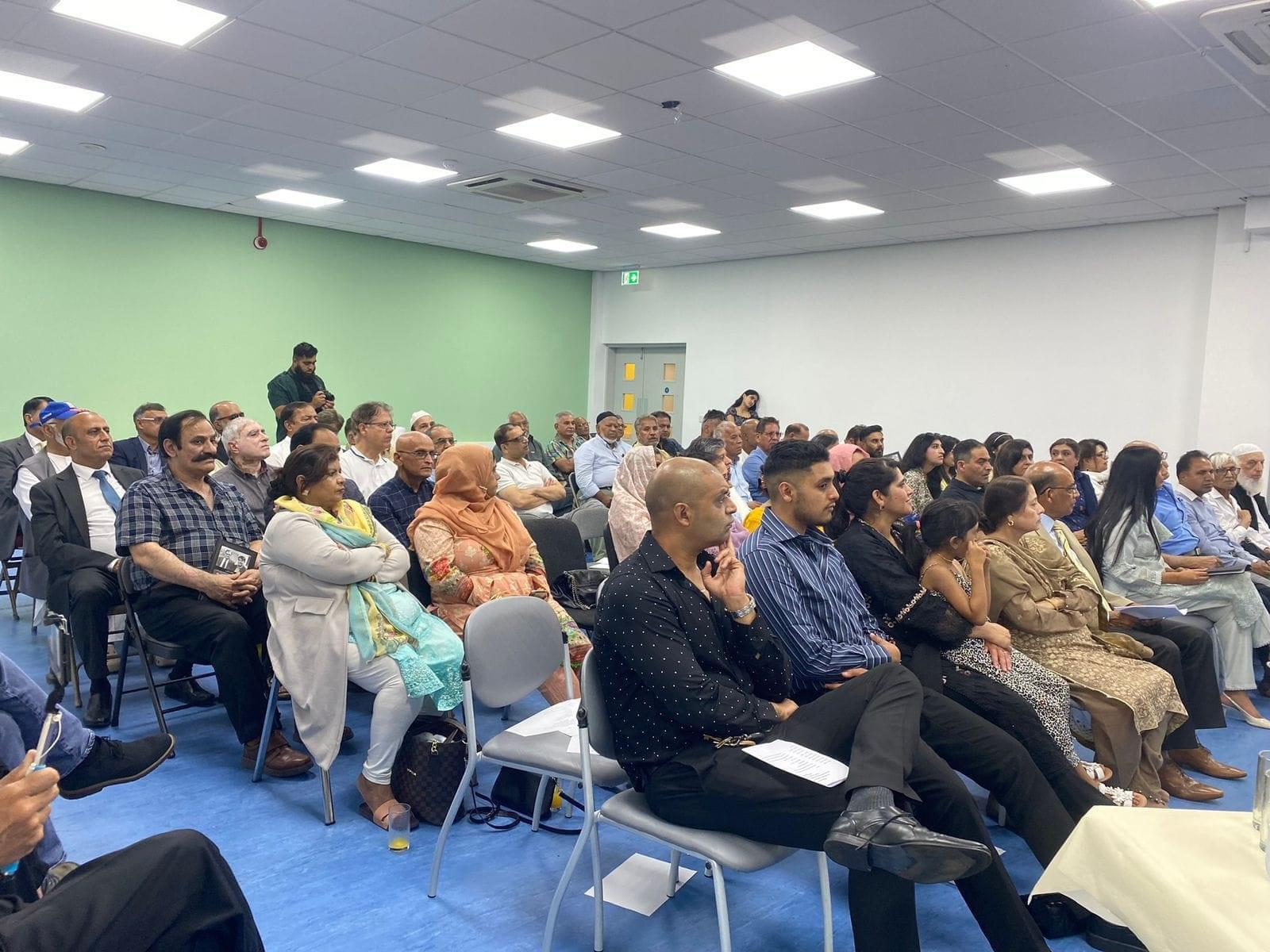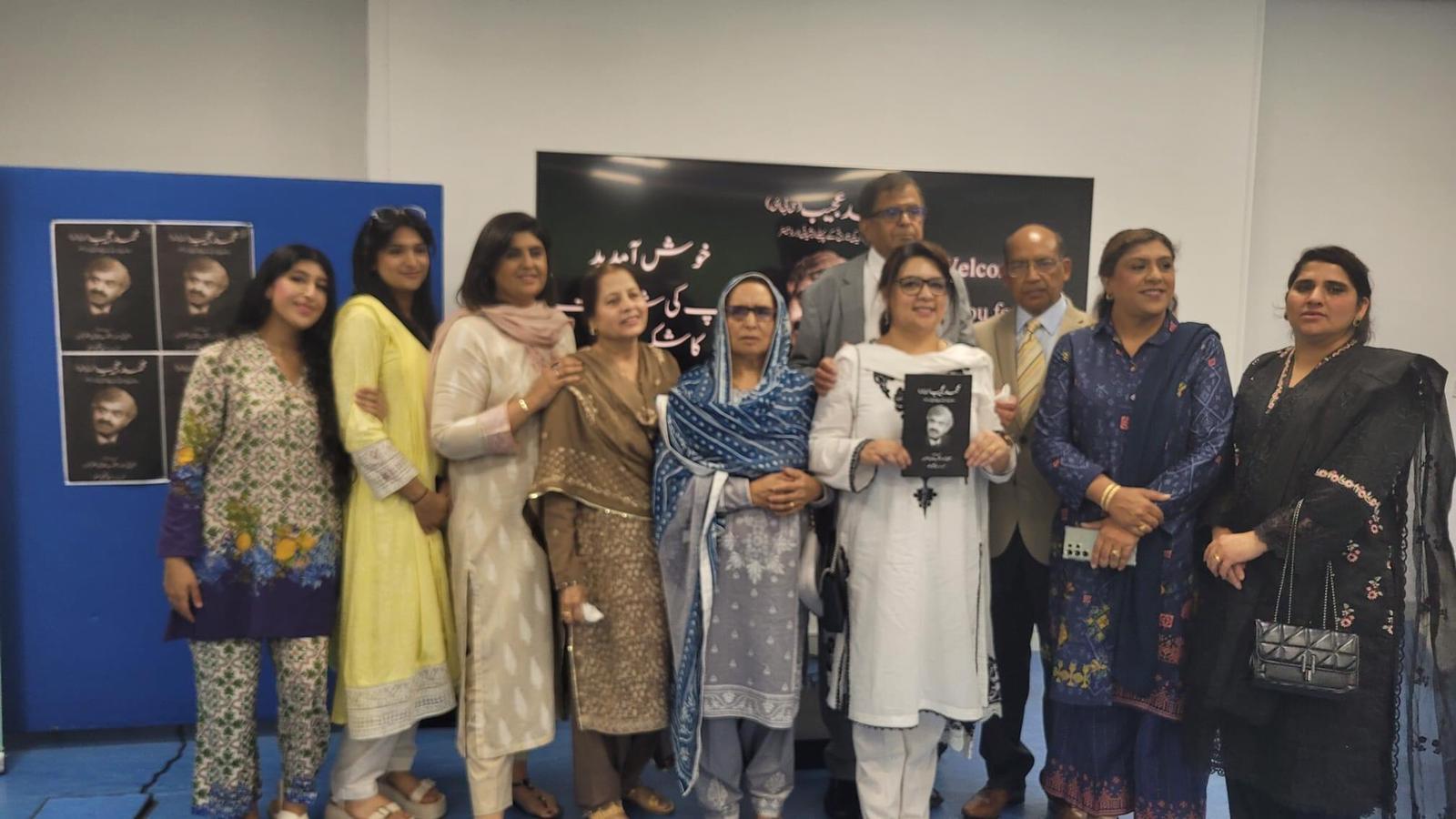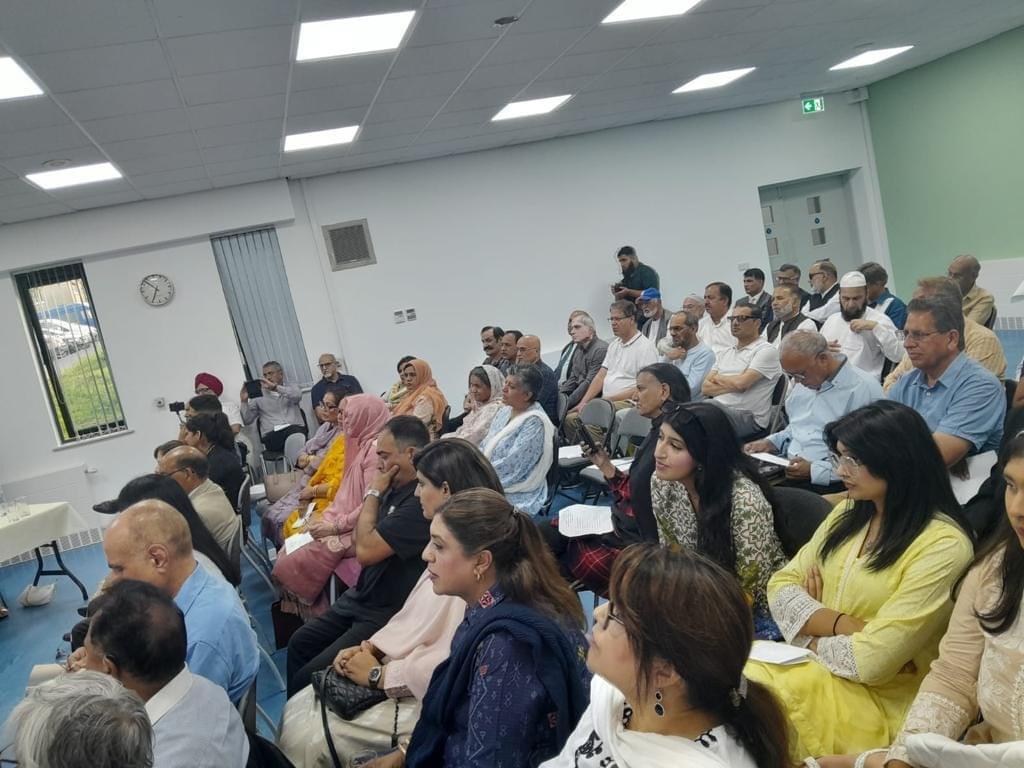Rising Above Ordinariness: The Story of a Pakistani-Origin UK Citizen
Ishtiaq Ahmed
Bradford-UK: The biographical testimonial book ‘Mohammed Ajeeb CBE: Britain’s First Asian Lord Mayor’ was launched in Bradford, fondly referred to as ‘Little Pakistan, on September 8 to a diverse audience of civic and community dignitaries from across the country.
It is a translation with some additional chapters by Syed Shabir Ahmed of the original English edition, ‘Mohammed Ajeeb CBE: Rising Above Ordinariness’, compiled by myself, Yaqub Nizami, and Zaffar Tanweer.
‘Mohammed Ajeeb CBE: Britain’s First Asian Lord Mayor’ is a compilation of short articles contributed by senior Bradfordians from across different communities that make up the city’s diaspora.
The contributors are those who had the opportunity to work with Mohammed Ajeeb over the decades and observe him closely. It traces and captures the extraordinary life struggles and achievements of Mohammed Ajeeb as he navigated through difficult racist and xenophobic terrain of the 60s, 70s, and 80s that was reality for him and many of his compatriots and other minorities of colour.  The book records and celebrates the struggle of an individual from a remote part of Mirpur (AJK), from a hard-working, relatively comfortable, but not a rich family.
The book records and celebrates the struggle of an individual from a remote part of Mirpur (AJK), from a hard-working, relatively comfortable, but not a rich family.
Mohammed Ajeeb lost his beloved mother at an early age and was brought up by his loving father and sent to school, first to the primary school in his village of Chatroh, then to the middle school at Hill, and thereafter to the high school at Dadyal for his matriculation, after which he ended up in Karachi, in those days a natural destination for young men from this part of the country in search of regular employment.
But Mohammed Ajeeb’s appetite for education to improve his life chances saw the better of him, thus propelling him to achieve a Bachelor of Arts (BA) from Karachi University in 1958, a rare feat for a young man from a working-class family, hundreds of miles away from his home and loving family.
He arrived in the UK in the same year at the suggestion of a friend from Karachi who had already traveled. In those days, most Pakistanis and Kashmiris worked in mills and factories doing menial, unskilled, and semiskilled jobs. Mohammed Ajeeb was not content to join and remain in the ranks of the majority. He was determined not to resign himself to being ordinary. It is this that makes his story so inspirational.  Mohammed’s appointment as the first non-white and for that matter, the first South Asian Muslim Lord Mayor of Bradford in 1985, one of the UK’s premier cities, was a significant achievement. It was even more significant that he was appointed the first citizen of Bradford, fondly referred to as ‘Little Pakistan’.
Mohammed’s appointment as the first non-white and for that matter, the first South Asian Muslim Lord Mayor of Bradford in 1985, one of the UK’s premier cities, was a significant achievement. It was even more significant that he was appointed the first citizen of Bradford, fondly referred to as ‘Little Pakistan’.
The news was greeted with joy and unprecedented elation by Pakistanis, Kashmiris, and other migrant communities in Bradford and across the width of the UK, perhaps more so in Mirpur and elsewhere in AJK.
The BBC dedicated an hour-long documentary to capturing his journey from rags to riches, not in terms of money but influence and position, being the first to break the glass ceiling. He set the standard, and several others followed in his footsteps. It is no coincidence that today one-third of the elected Bradford Council is of Pakistani Kashmiri origin, and the city boasts two members of parliament of Kashmiri origin.
Mohammed Ajeeb’s appointment was not welcomed by all. There were those in his political party who had doubts about the viability of his appointment, fearing the public backlash. The reaction from the right-wing elements of society was pretty violent.  His house was attacked and set on fire. He received sacks full of hate letters. The guards were placed at his house to protect him and his family. However, he rose above all this with courage and strength to reach out, ultimately winning the respect and admiration of the public across all communities.
His house was attacked and set on fire. He received sacks full of hate letters. The guards were placed at his house to protect him and his family. However, he rose above all this with courage and strength to reach out, ultimately winning the respect and admiration of the public across all communities.
The significance of Bradford for Pakistan and AJK, even in those days, could be judged by the frequent visits to the city of major politicians from ‘home’. It was also a city that was visited by Zulfiqar Ali Bhutto and Benazir Bhutto as her last stop before returning to Pakistan.
The city can also lay claim to launching Imran Khan’s charitable and political career. It was where Imran Khan was appointed Chancellor of the city’s University.  By 1985, the presence of Pakistani / Kashmiri communities was already being strongly felt in the life of the city through some hard-fought campaigns, for example, the provision of halal meat or poultry-based diet in schools, the teaching of Urdu and other community languages in the state schools, the teaching of minority faiths, including Islam, in state schools, which hitherto was primarily Christianity-based, and calls for recognition and celebration of diverse faith and cultural events and festivals such as Eids and Independence Day. Mohammed Ajeeb, as the Chairman of Bradford Racial Equality and the elected councilor, was an influential voice throughout.
By 1985, the presence of Pakistani / Kashmiri communities was already being strongly felt in the life of the city through some hard-fought campaigns, for example, the provision of halal meat or poultry-based diet in schools, the teaching of Urdu and other community languages in the state schools, the teaching of minority faiths, including Islam, in state schools, which hitherto was primarily Christianity-based, and calls for recognition and celebration of diverse faith and cultural events and festivals such as Eids and Independence Day. Mohammed Ajeeb, as the Chairman of Bradford Racial Equality and the elected councilor, was an influential voice throughout.
Therefore, it was a significantly proud moment for the British Pakistanis and Kashmiris when Mohammed Ajeeb was appointed as the first citizen of Bradford Metropolitan District. It was a recognition of the growing cultural, political, and economic influence of the city’s Pakistani and Kashmiri communities, as though their presence and their worth to the city had finally been accepted.
In this sense, Mohammed Ajeeb was not only the success of a highly able politician, but it represented the collective success of a community grappling with its identity and place in British society, thousands of miles away from the villages, towns, and cities of Pakistan and Kashmir

Great read, thank you Ishtiaq. Sorry I missed the event.